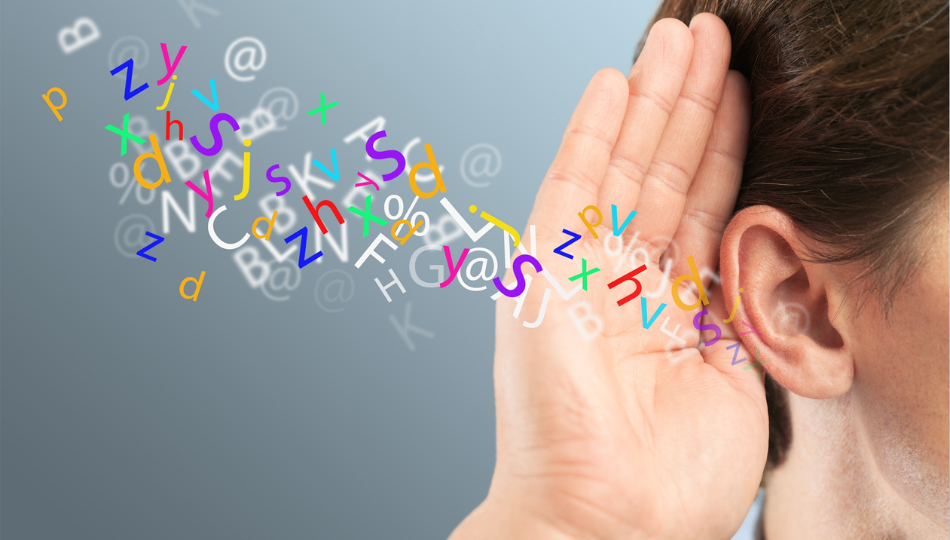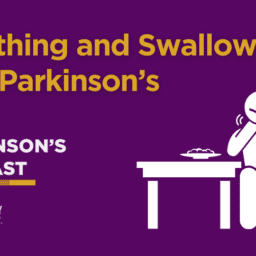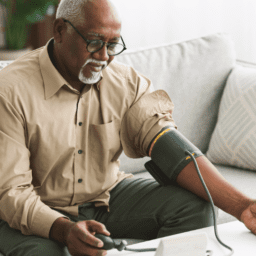A community member recently reached out and asked about the relationship between auditory processing and Parkinson’s. While auditory processing issues are not often discussed as Parkinson’s symptoms, the two can often go hand-in-hand. Here, we’ll discuss the links between auditory processing disorder and Parkinson’s and where to find resources and therapies.
What is auditory processing disorder?
Auditory processing disorder (APD) is characterized by difficulty in understanding speech. If you have APD, you might mistake minor differences between words, like hearing “Please reach the log” instead of “Please feed the dog.” You could also have trouble filtering certain sounds in noisy places or getting the order of words right. If you or someone you know is showing some of the following signs, APD might be at play:
- Difficulty understanding or responding to spoken speech
- Feeling like you are always speaking too loudly or shouting
- Asking for repetition, seeming confused after someone else speaks, or constantly saying “what?” after being spoken to
- Having trouble making out conversations or specific auditory details in loud settings, like a busy restaurant
- Struggling to remember things that have been said
- Interpreting loud noises as much louder than other people do
- Seemingly overly distracted by irrelevant or background noises
- Having trouble spelling out loud
- Needing to pause and rewind TV, audiobooks, or podcasts to understand them
However, APD isn’t like other disorders that make hearing difficult because a processing error causes it in your brain rather than a problem with your ears. Studies suggest that while people with Parkinson’s often experience a broad swath of sensorimotor issues, changes to the basal ganglia and brainstem specifically contribute to APD. But when hearing loss is common in seniors, and there’s some overlap in the symptoms between APD and hearing loss, how can you know which one is the culprit?
What does research tell us?
While more research is necessary, several preliminary studies indicate a connection between auditory processing issues and Parkinson’s. For example, a 2020 study found that normal aging combined with Parkinson’s neuropathology means that people with Parkinson’s are at a higher risk of developing different hearing impairments. They also found that a lack of dopamine, a hallmark characteristic of Parkinson’s, may be related to auditory issues because dopamine helps with sensory processing. They also suggested that early intervention with dopaminergic medication could be helpful for auditory processing, though more investigation is required.
Another study found that people with Parkinson’s often have cortical and subcortical activation changes in response to passive sensory stimulation. This suggests that neurological changes in the brain, including the basal ganglia, cause altered sensory processing – including hearing impairment – and may also be linked to motor symptoms.
A large-scale literature review from 2019 found a revealing set of conclusions about the links between Parkinson’s and auditory processing. The Belgian researchers found that people with Parkinson’s often have trouble processing the intensity and duration of sounds but tend to be able to process pitch correctly. They also found evidence of abnormal auditory brainstem responses. This suggests that APD in people with Parkinson’s is a neurological symptom rather than a problem with the ears. Finally, they found a significant difference in brain responses to auditory stimuli. Those same results have emerged in other studies, including a 2014 study that found differences in neural processing in response to auditory stimuli in people with Parkinson’s compared to controls. Across the board, this research reinforces the importance of evaluating potential hearing issues to improve your quality of life.
How to get treatment
Your primary care doctor can be a great first source, as they will often be able to diagnose hearing loss at a regular appointment. However, suppose they find that your hearing is intact, but you still have trouble processing speech and sound. In that case, your doctor will likely refer you to an audiologist or an ENT (otorhinolaryngologist or ear/nose/throat doctor) to get a more extensive workup. They can look for APD and any other hearing issues that might be related to your Parkinson’s.
Since APD is most commonly diagnosed in children, in-school speech therapy is often the best course of action. However, seeking a speech-language pathologist is also an excellent resource for people with Parkinson’s. Occupational therapists can also be very helpful. They can give you exercises to work on, listening devices that may help, or environmental modifications to help make your circumstances work for you. If you work, reaching out to your supervisor and consulting ADA resources can help you find appropriate accommodations. Finally, consult your primary care doctor, an audiologist, an ENT, or your MDS to ensure you receive care for all your Parkinson’s symptoms. Though APD and hearing impairments often go unmentioned, taking care of them is essential to living well with Parkinson’s.
WANT MORE PRACTICAL ARTICLES LIKE THIS?
You can learn much more about living well with Parkinson’s today through our Every Victory Counts® suite of resources. Each manual is packed with up-to-date information about everything Parkinson’s. Click the link below to reserve your manual(s).

















